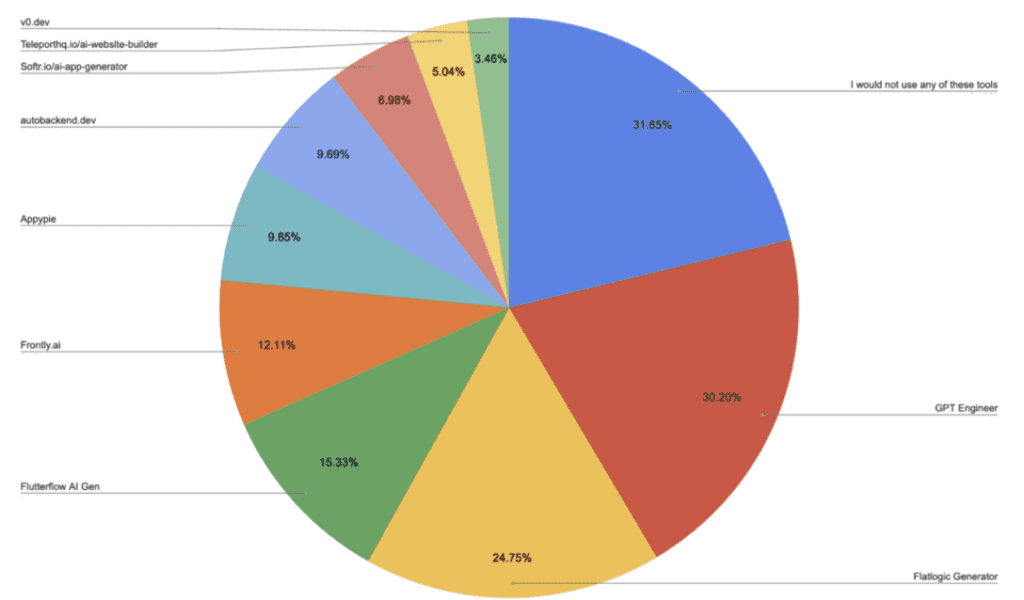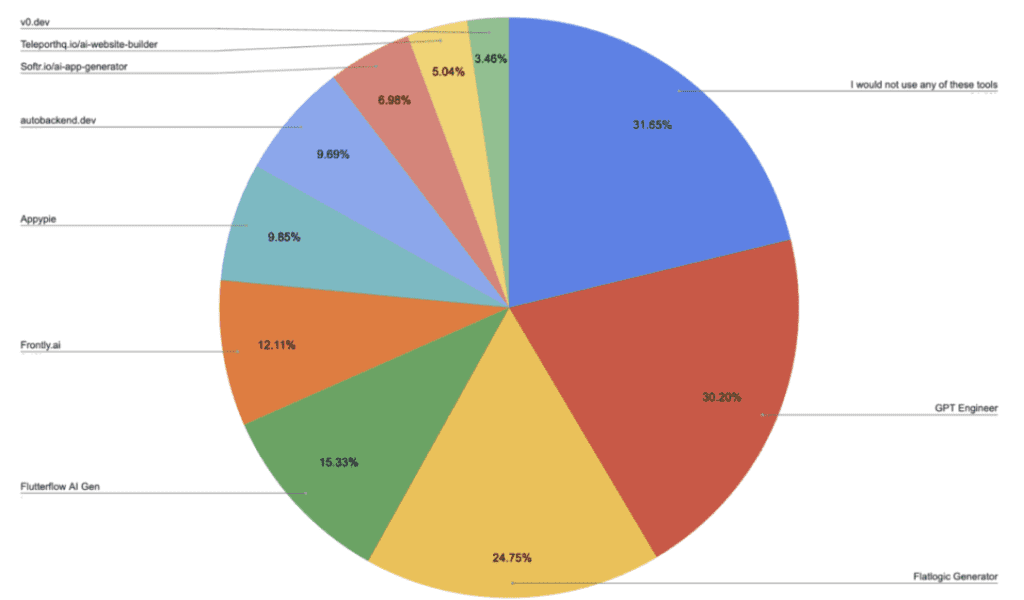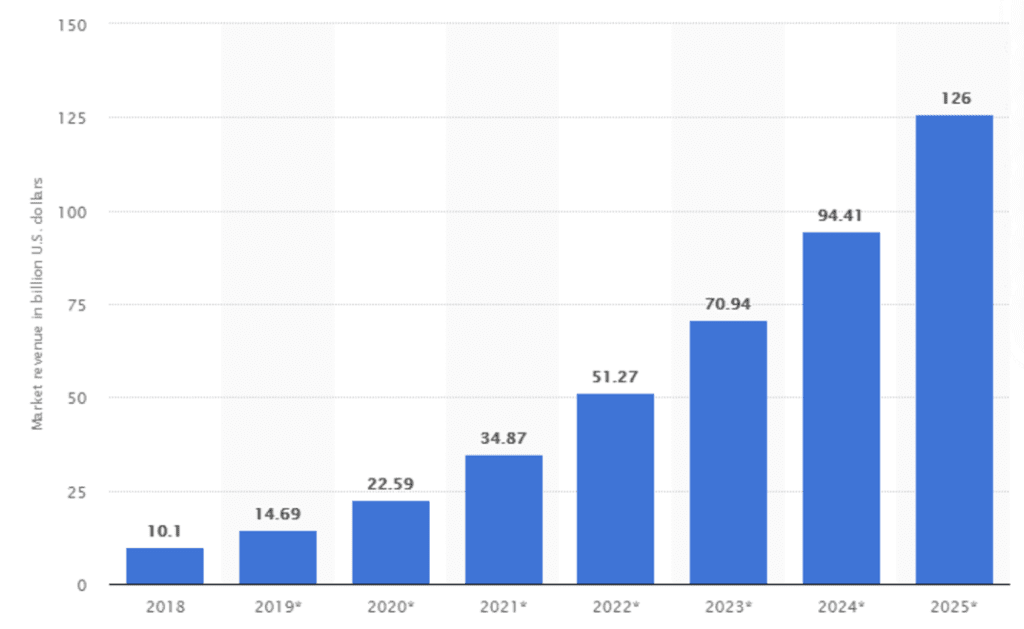
Role of AI in Modern Web App Generators: A Game Changer for Developers
November 27, 2024The expansion of artificial intelligence (AI) in web app generators is revolutionizing the approach to app development in the contemporary dynamic environment. Thanks to these innovative technologies, which enhance the use of the interface, accelerate and facilitate development processes, and decrease time-consuming activities as much as possible, they include the following article, which analyzes how AI is changing modern web application creators and its benefits, challenges, and applications. Read on to find out how machine learning is revolutionizing web development for the people and organizations involved.
What is a Web App Generator?
Web app generators, which are used to construct web applications, will help develop software with less time and more efficiency. These generators can develop both front-end and back-end elements, often with templates and pre-built structures as part of the process.
They allow the developer to focus on customization instead of the manufacturing line-type work by deploying low-code or no-code tools. A Gartner analysis has promulgated that by 2024, a majority of more than 65% of application development activity will take place with low code, which points towards even further software development automation.

Different Web App Generators
Importance of Web App Generator
The following are the benefits of web app generator:
- Enhanced Efficiency: Web app generators provide a way for developers to create applications more quickly because most boring work has already been done.
- Time-saving: When adopting pre-built templates and components where possible, developers can focus much of their attention on making adjustments.
- Accessibility for Non-Developers: With low-code and no-code platforms, great apps suitable for small businesses or individuals are now possible.
- Collaboration: These technologies enable collaboration by providing an interface better understood by developers and other team members than plain code and making communication easier.
- Rapid Prototyping: Rapid prototyping brings many benefits to development. It speeds up the evaluation and subsequent iteration of concepts, leading to better end results and quicker feedback.
Types of Web App Generator
There are mainly three types of web app generators which are mentioned below in the table:
| Type of Web App Generator | Description | Key Features |
| Low-Code Platforms | Developers can use these applications to produce apps with virtually no hand coding. They provide a visual development environment, enabling faster application development. | – Drag-and-drop interfaces- Pre-built templates- Integration with various services |
| No-Code Platforms | Designed for users without programming skills, these platforms enable the creation of applications through visual tools and configurations. | – User-friendly interfaces- Quick deployment- Limited customization compared to low-code |
| Traditional Frameworks | These are conventional coding frameworks that require extensive programming knowledge. Developers write code manually to build applications from scratch. | – Full control over code- Greater flexibility and customization- Steeper learning curve |
AI’s Role in Development
Historical Background
We know that AI has been in the development of software for several years now and developed from simple systems to complex algorithms. At first, it was used only for operating data and to perform fundamental tasks. However, with improvements in computing capabilities and data availability, AI has evolved.
Now, it is capable of debugging and developing code efficiently. Today, it supports engineers in designing by providing relevant code and performing specific tasks on their own. For instance, GitHub Copilot increases productivity by a great deal.
AI Trends in Web Development
- From websites to web development, machine learning, and natural language processing are rapidly transforming one sector in particular.
- It makes log-developing tender applicable through generative AI and also suggests valuable recommendations.
- This change covers all the levels of coding when it comes to expertise, making it easy for everyone.
- These technologies are part of development processes; they promote a culture of sustainable learning in projects.
- As these technologies evolve, consumption of them is expected to rise. In particular, the AI market is expected to be $1.8 trillion by the year 2030.
Effects on Growth
The contingencies of AI are an influential factor in development processes. AI performs routine and manual activities such as coding and testing at its discretion. This leaves developers with more complex aspects that require human intelligence and thinking strategies. This transformation improves productivity and projects. It reduces mistakes and increases the efficiency of delivery.
They might publish higher-quality apps more rapidly, and those developers may be able to do so. AI can increase the pace of development when you hire Shopify expert. It would also benefit increasing traffic for firms that are trying to improve their internet popularity.

Revenue from the AI Software Market
How AI Improves Web App Generator to Change the Game for Developers
AI has become a tool that influences how developers design and manage apps. That is now in web app generators. It shows how AI is speeding up and easing development. Many of them perform repetitive operations, enhance consumers’ experiences, and offer essential information. However, these soft tools are much better available in the current world. Now, let us consider how AI enhances web app generators in the later sections.
Easy Methods for Development
- Automation of Repeated Chores: AI is also able to apply coding work, such as formatting standard layouts and basic code templates on its own. Developers can now focus their efforts on other complex features of development.
- Code Generation: Some AI use cases suggest that with only the provisions of simple instructions or descriptions, the resultant complex algorithms can act as entire codebases. For example, programs like Flatlogic allow customers to describe their app requirements as plainly as possible, and an AI designs an app based on their description.
Improved User Experience
- Personalized Design Recommendations: Using the information about the users’ preferences and trends in the market, AI suggests which design features are to be incorporated. This ensures programs satisfy user requirements and have pleasing looks to the eyes.
- Responsive Design: AI-based generators apply different layouts for distinct client screen resolutions because many consumers work on mobile devices when using applications. This provides a high level of similarity in the layout for users of different equipment.
Better Content Management
- Content Optimization: With information about user engagement, AI technologies can analyze existing content and suggest modifications. This includes advising changes to formatting issues and keyword changes for efficacy and effectiveness.
- Dynamic Updates: Some AI generators are designed to change the content of web pages in real-time based on user’s actions and reactions; such generated content is improved in real-time to maximize the relevance of the material provided without human interaction.
Enhanced Cooperation
- Features for Real-Time Collaboration: Many platforms on AI offer collaborative working environments in which one or multiple contributors can join and work simultaneously. That, in turn, is beneficial for better communication and consistency in project development.
- Version Control: When linked to version control, it ensures that everyone is in sync, and they can track the changes made to ensure everyone is ok with them at every step of the development process.
Advance Analysis
- Analysis of User Behavior: AI technologies can analyze data regarding how users interact with an application. This information makes it easier to make judgments when deciding whether to improve the following features or make a subsequent design alteration.
- Predictive analytics: Similarly, by utilizing past data, this AI may predict the future pattern of users’ behavior, which can be helpful to developers who anticipate future needs and make some preventive changes.
Cost-effectiveness
- Decreased Development Time: It also significantly reduces the degree of time required to deploy an application by reducing many aspects of the application development process. This can significantly benefit startups and other small enterprises that wish to penetrate the market early.
- Reduced Resource Investment: These solutions require companies to hire specialists in coding to reduce hiring expenses. For example, companies that want to utilize Shopify solutions can employ a specialist in Shopify who knows how to integrate all these progressive functions to enhance the speed of development processes.
Upcoming Developments
- Voice Activation and Natural Language Processing: As AI technology evolves, we can expect more features, such as a voice command system, to be developed for websites or applications.
- Integration with Emerging Technologies: Combining AI with AR and VR might give people the opportunity to have realistic interactions with virtual counterparts, blurring the line between online and physical existence.
Case Study: Design of Mary’s Web Application
Suppose Mary is a marketing expert who provides Shopify development services. She knows nothing about coding and decided to build a web application using a low-code platform that operates on artificial intelligence as its core. The procedure demonstrates how AI improves the creation of web apps:
- Project Initialization: When registering, Mary had to state the project’s goal and audience. Next, select features and templates from the analysis of the woman. They must meet her needs.
- Natural Language Processing: To Mary, it was easier to explain client relationships and other graphics than to write complex code. She preferred using simple spoken commands. Manual coding usually takes less time than what was observed. The AI deduced what she needed based on the search keywords to generate code snippets.
- Design Support: The platform shows layout designs a user can work on. It uses best practices and popular design patterns, via smart UI/UX tools. This function helped Mary focus on content, not design.
- Automated Testing: After building the app, we ran AI tests to find bugs and slowness before launch. This pleased customers. It reduced the chance of a launch failure due to common mistakes.
Challenges of AI in Modern Web App Generators
Web application developers face several challenges when incorporating AI into web app generators to benefit fully from this technology.
AI Output Quality
The use of code generated by AI can be highly effective, but it can also be not very effective. AI can give code examples and perform actions. But, the quality of such complex advances may need to be better. AI outputs often need developers’ review and refinement. This is to meet project requirements and standards. Again, it is crucial to hire a Shopify specialist. They alone can provide the needed oversight to improve the result.
Technology Dependency
A skill gap could develop among developers who rely on advanced AI tools. As automation increases, developers must be better at standard coding practices. This dependence may make it harder to solve problems when they arise. It requires manual model tweaks or a better understanding of the code. Companies should keep learning. They must balance learning to program and using AI tools to minimize risk.
Ethical Consideration
Algorithmic prejudice and data privacy are ethics raised by the use of Artificial Intelligence. Developers should ensure that their applications respect data privacy laws and do not ‘feed back’ biases that we find in the training data. Since Shopify experts tend to be well informed of compliance issues related to e-commerce solutions, hiring them may assist you in negotiating these issues.
Integration Difficulties
A potential problem could be technical. Combining AI with modern web apps might be difficult. There could also be rights issues. These might need extra time and effort to solve. Hire Shopify expert to speed things up during integration. They can easily integrate AI products into Shopify.
Emerging Trends in AI and Web App Development
Artificial intelligence (AI) is set to revolutionize web app development. It will change how apps are created and updated. Shopify is poised to become the top platform for starting businesses. As more companies adopt Shopify, the integration of AI in business will rise.
Customization and User Experience
AI will offer personalized recommendations and navigation based on user decisions. This leads to smart apps. These apps work in real-time, offering relevant content and suggestions. For instance, Shopify-related services can enhance shopping. They suggest products based on a customer’s browsing history.
Intelligent Automation
AI accelerates development by blanking out repetitive activities that can be tiresome. It covers basic coding and testing. This lets developers tackle tougher problems. It also boosts efficiency and cuts the time to launch new features and apps.
Increased Security Protocols
AI technologies will also improve the existing protocols for security in web applications. Programmers can better protect user data. They should use machine learning to analyze non-standard behavior and potential risks on an ongoing basis. This is crucial for e-commerce platforms operating in Shopify development services.
Conclusion
AI is already helping web app producers. It is making processes much easier. AI helps both developers and non-developers build reliable apps. It does this by automating tasks and providing analytical insights. Also, these developments will likely continue to shape web development. So, we must be aware of the changes.

